Research
Research conducted at Teachers College sheds new light on successful national systems of early childhood education and care; improving voucher programs to move families to “higher-opportunity” neighborhoods; promoting “deeper noticing” in science education; services for youth who have been exposed to gun violence; the myth of “saving the Third World”; the ability of public schools to feed students freshly prepared food; and much more.
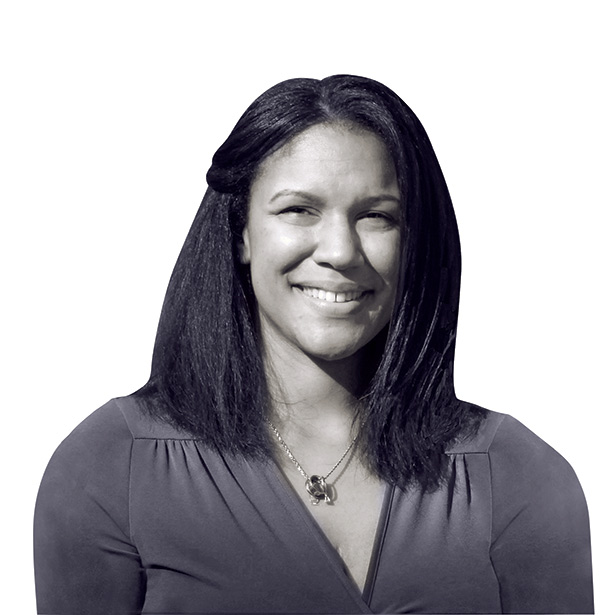
LITERARY EAR Furlonge argues that black writing — Zora Neale Hurston, Sterling Brown, Ralph Ellison — is sonic. She proposes “ethical listening.” (Photo: TC Archives)
Hearing Black Writing
In her book, Race Sounds: The Art of Listening in African American Literature (University of Iowa Press), Nicole Brittingham Furlonge, Director of TC’s Klingenstein Center for Independent School Leadership, builds on theorist Robert Stepto’s contention that black writing is “sonic” and proposes that writers such as Zora Neale Hurston, Sterling Brown and Ralph Ellison require “ethical listening.”
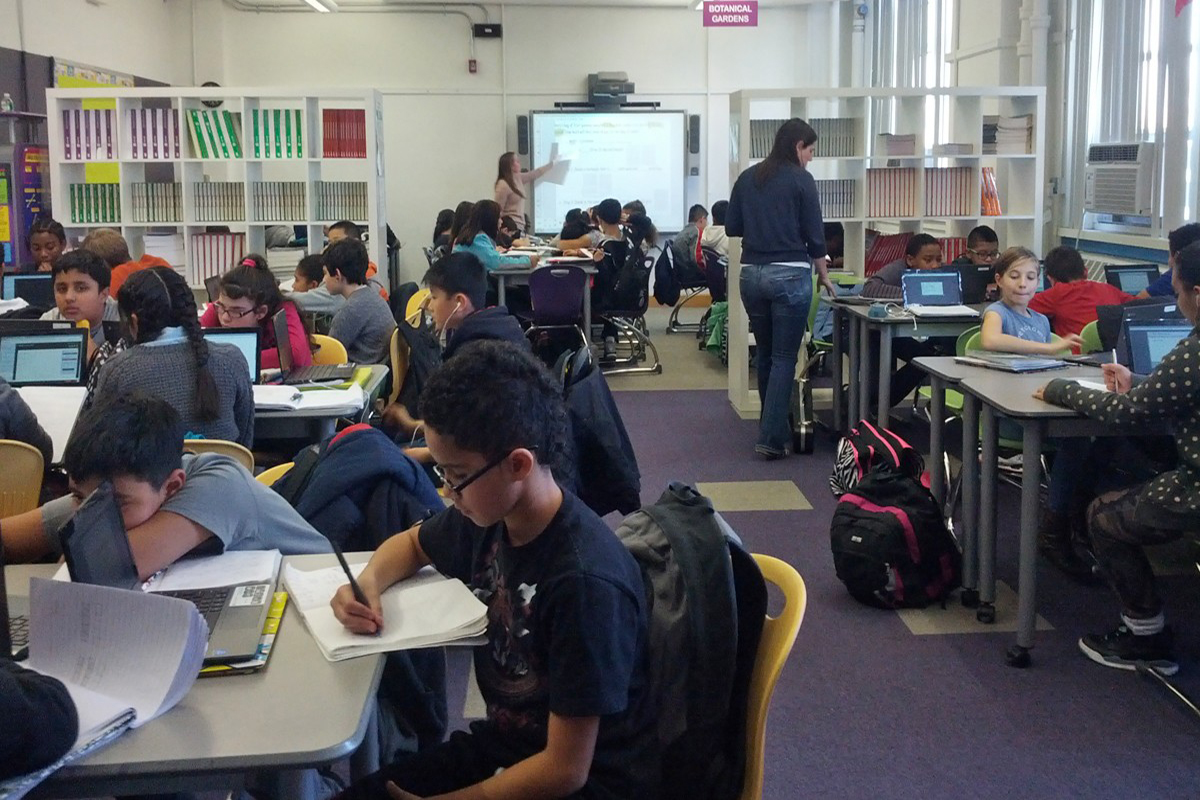
A classroom using the Teach to One math program. (Photo: Nichole Dobo)
No Gains for “Personalized” Math
A study led by Douglas Ready, Associate Professor of Education & Public Policy, finds that middle schoolers in Elizabeth, New Jersey schools who learned math for three years via Teach to One, a computerized system that customizes lessons for each student, scored no better on New Jersey’s annual math tests than peers who all worked on the same topic at the same time. The study is described in a story produced by The Hechinger Report, a nonprofit, independent news organization focused on inequality and innovation in education and based at Teachers College, Columbia University.
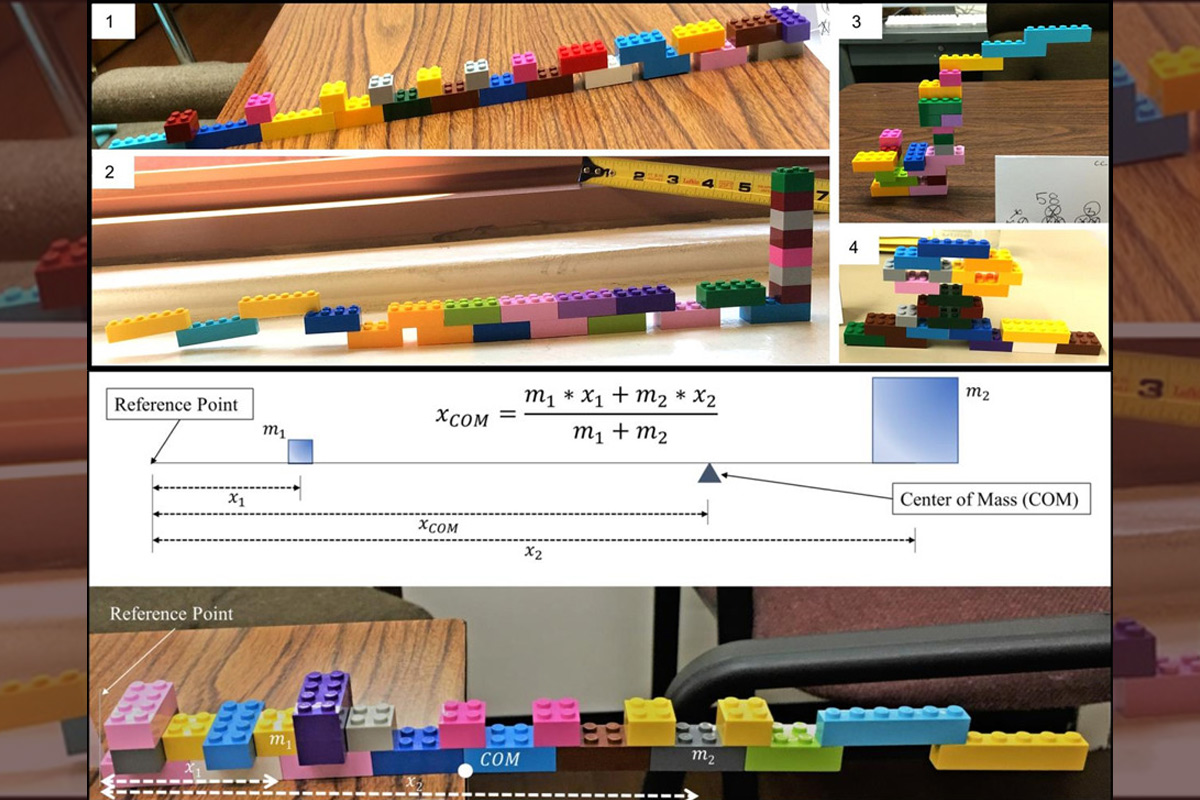
BUILDING BLOCKS Chase’s study assigned two groups of learners to build a Lego cantilever. Those who also analyzed contrasting cases were likelier to notice the physics concept of “center-of-mass.” (Photo: TC Archives)
“Deeper Noticing” in Science Education
Without the guidance of well-trained teachers, science students may focus on “trial‐and‐error approaches to generating problem solutions instead of careful application of and reflection on scientific principles,” write Catherine Chase, Assistant Professor of Cognitive Studies; Laura Malkiewich (Ph.D. ’18), a research scientist with the EdTech company 2U; and TC doctoral candidate Aakash S. Kumar. Their paper, published in Science Education, warns that “the hands‐on nature of many engineering projects makes them susceptible to devolving into mere ‘arts and crafts’ projects.”
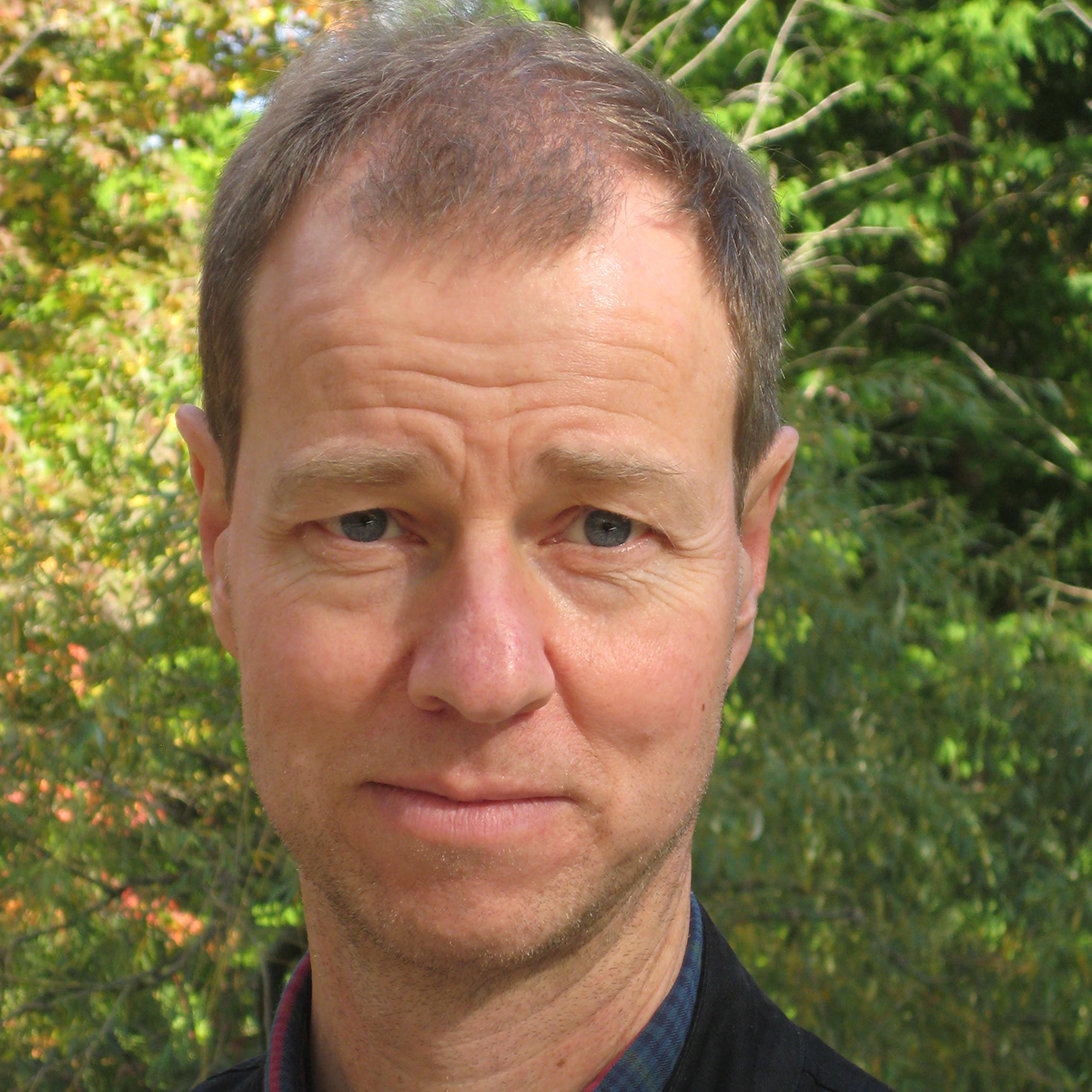
MAPPING COLLABORATION Thomas Hatch, NCREST Co-Director and Professor of Education, looked at relationships between different reading programs. (Photo: TC Archives)
The Read on NYC’s K–3 Reading Programs
A working paper by Thomas Hatch, Professor of Education and Co-Director of TC’s National Center for Restructuring Education, Schools & Teaching (NCREST), and colleagues Meesuk Ahn, Daniel Ferguson and Alyson Rumberger, describes an emerging industry of more than 100 intermediary organizations and support providers charged with helping New York City public schools improve K–3 reading outcomes. Collectively, these programs are capable of realizing that goal, but with many programs working in isolation and tapping sources of funding and expertise that often are only loosely connected, the NCREST researchers call for “explicit strategies . . . to support greater coherence in the sector.”
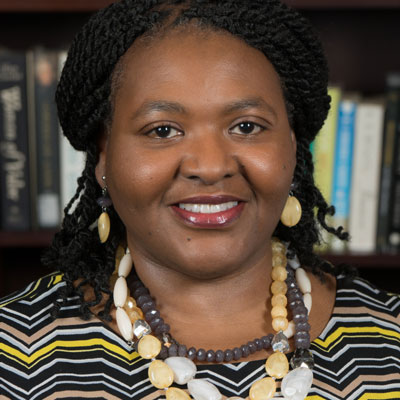
SHE REALLY WANTS TO KNOW In her Science Methods course at TC, Mensah makes a point of sounding out students about their educational experiences, including those involving race and racism. (Photo: Erick Raphael)
The Making of a Black, Female Science Teacher
In “Finding Voice and Passion: Critical Race Theory Methodology in Science Teacher Education,” published in the American Educational Research Journal, Felicia Mensah, Professor of Science & Education, chronicles the journey of a black, female elementary school science teacher from childhood through her first full-time teaching appointment in New York City. Mensah concludes that, in a society and an education system in which race and racism are defining characteristics, female teachers of color need “multiple opportunities to write and talk about their educational experiences, and even home and early school experiences regarding race and racism.”
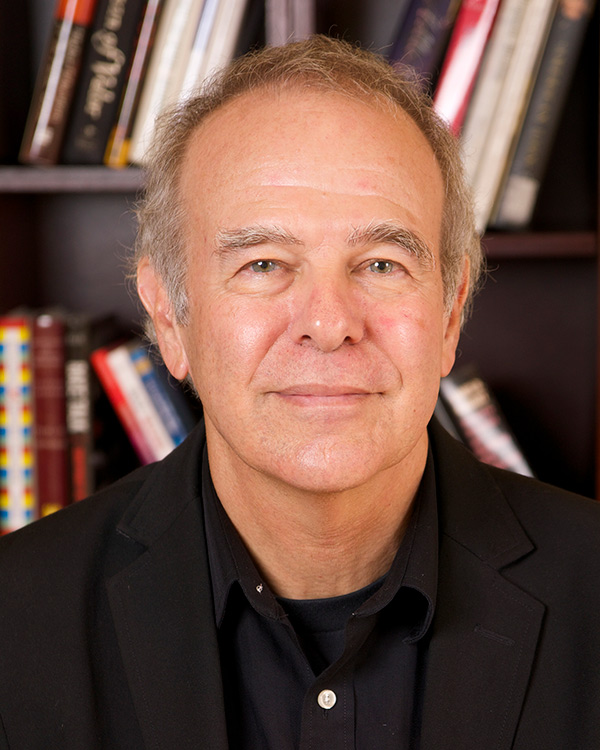
PARSING THE NUMBERS Henig and his co-authors analyzed thousands of campaign contributions in five cities. (Photo: Erick Raphael)
Education’s New Ground Zero
Big national donors such as Michael Bloomberg, Eli Broad, Alice Walton and Reid Hoffman are increasingly backing school board candidates in local elections, report TC political scientist Jeffrey Henig and Michigan State University’s Rebecca Jacobsen (Ph.D. ’07) and Sarah Reckhow in Outside Money in School Board Elections: The Nationalization of Education Politics (Harvard Education Press). These wealthy donors — who typically target predominantly nonwhite, high-poverty districts to champion school choice, test-based accountability and mayoral control — don’t always win; teacher unions, too, have muscle and connection to local voters. But the authors argue that highly polarized, ideologically infused national debates may infiltrate local politics, obscuring other issues and hindering pragmatic problem-solving.
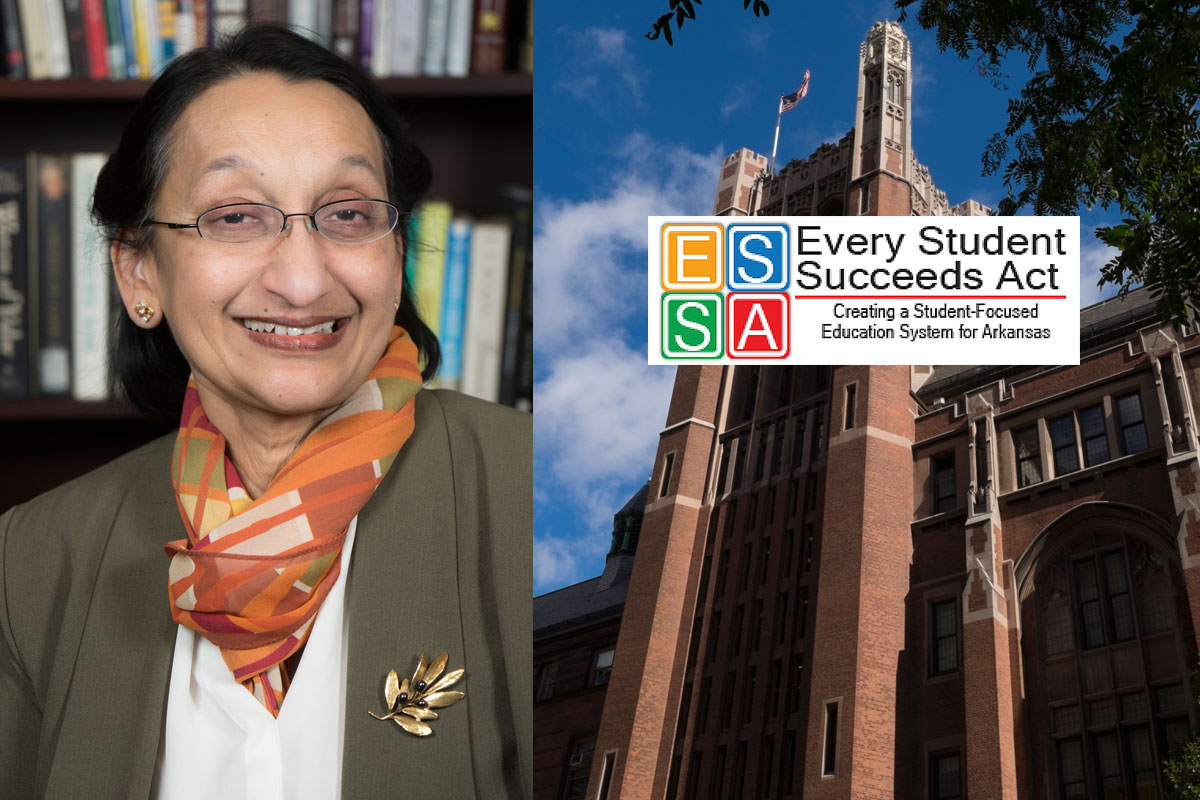
TAKE HEED, NOT TESTS TC's Chatterji warns that implementation of a 2015 federal education law could perpetuate misuse of standardized tests. (Photo: TC Archives)
ESSA’s Rollout
As 44 states begin meeting the testing and accountability requirements of the 2015 Every Student Succeeds Act (ESSA), TC measurement-evaluation expert Madhabi Chatterji warns in a National Policy Center publication of a new wave of inappropriate high-stakes testing. Many states plan to use testing to rank schools’ or education systems’ rates of growth — uses for which tests were not originally designed, and which Chatterji likens to “misreading a Fahrenheit thermometer in degrees Celsius.”
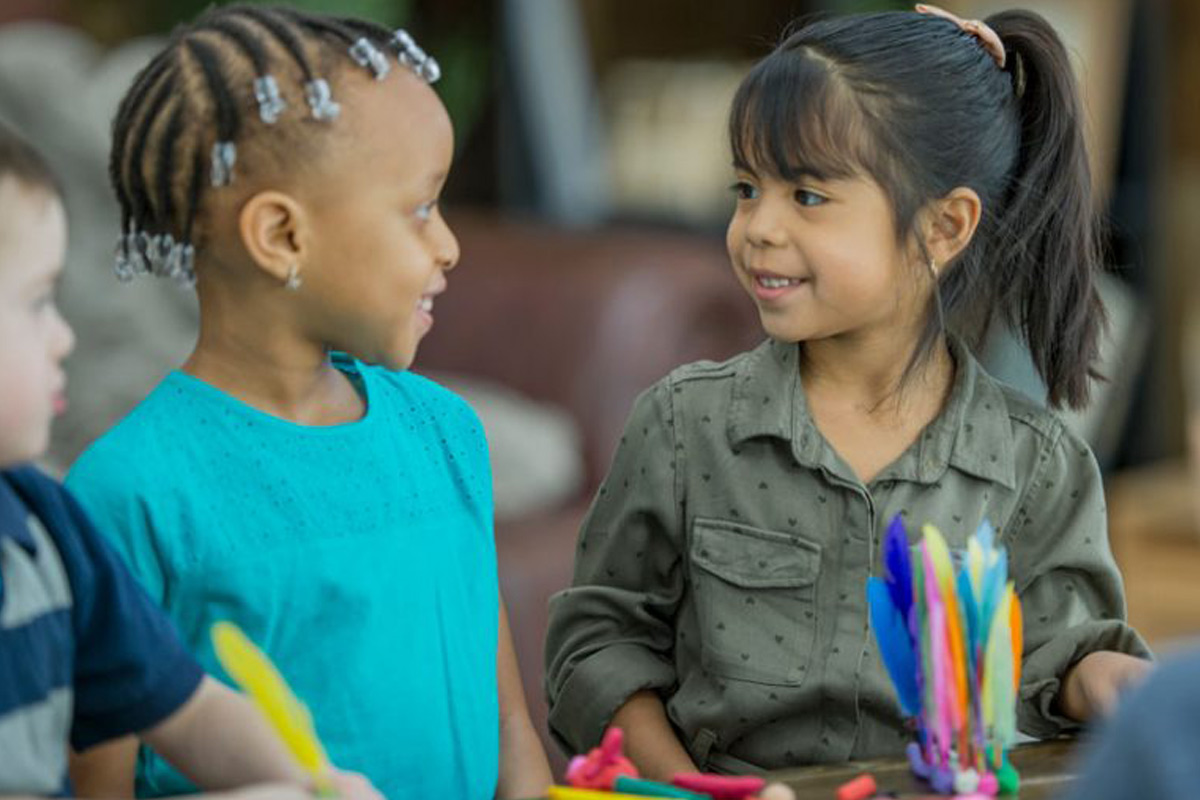
BETTER OUTCOMES FOR ALL CHILDREN The NCCF study points to ways in which New York City can deliver more uniform quality across the many programs that serve young children. (Photo: iStock)
Playing Together: Recommendations for NYC’s Pre-K for All
A new study by Teachers College’s National Center for Children & Families (NCCF) outlines how New York City’s Universal Pre-K for All (PKA), which is consolidating many programs into a single effort managed by the Department of Education, can deliver more uniform quality while still allowing providers to address children’s specific needs. “Quality across the system could be improved by addressing structural differences in resources, administration, professional development, and the programs’ capacity to meet the varied needs of children, families and communities across programs in a diverse city,” says NCCF Research Scientist Jeanne Reid, one of the study’s authors.
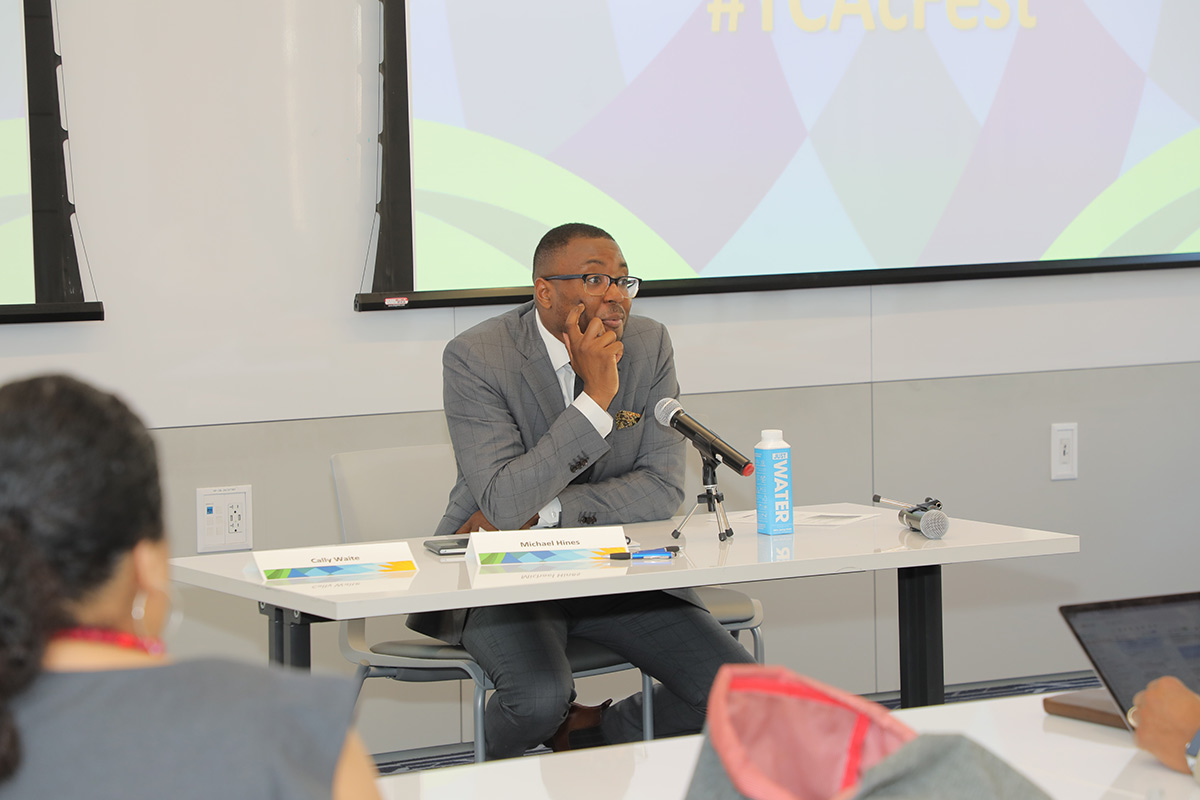
TELLING THE FULL STORY Hines’ book tells the forgotten story of a heroic black teacher who tried to change Chicago's public school curriculum to reflect the contributions of African Americans. (Photo: Maria Vullo)
She Made History in Teaching Black History
Michael Hines, Minority Postdoctoral Fellow, delivers the College’s inaugural Minority Postdoctoral Fellow Lecture at TC’s 2019 Academic Festival. Hines, whose book, The Blackboard and the Color Line: Madeline Morgan and Black History in Chicago’s Public Schools, 1942–1945, will soon be published by Beacon Press, speaks about Morgan, a pioneering black social studies teacher and activist whose goal was to ensure recognition for the contributions of black Americans in “every phase of American history . . . in adventure, science, education, art, music, war and labor.” Hines is now Assistant Professor in the Department of History & Education at Stanford University’s Graduate School of Education.
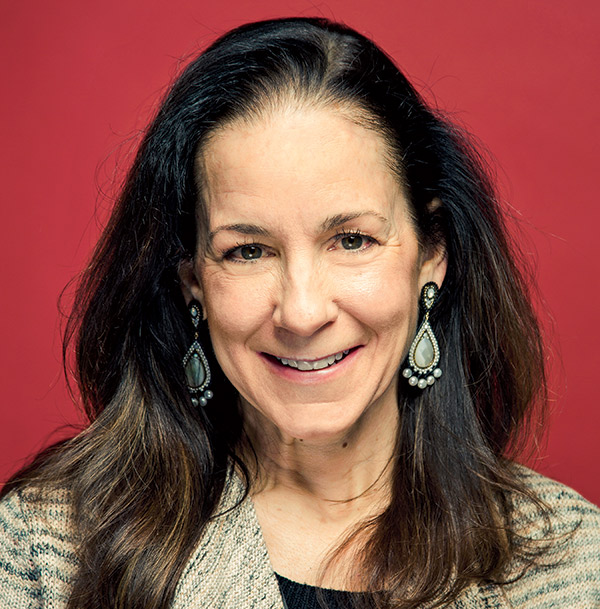
TAPPING POWERFUL CURRENTS Amy Stuart Wells, Professor of Sociology & Education, sees Toronto's "lost rivers" as a metaphor for the knowledge of indigenous peoples. (Photo: TC Archives)
Deep Waters Still Run — in Toronto and in Education
In her Presidential Address at the 2019 American Educational Research Association annual meeting, held in Toronto, Amy Stuart Wells, Professor of Sociology & Education, calls the city’s six “lost rivers” — buried waterways once central to the livelihood of indigenous people — “a metaphor for precious knowledge that settler-colonialists from Europe attempted to bury and erase.” Those waters remain “powerful currents of knowledge, understanding and resilience,” Wells asserts, for which there are parallels in education reform — including the de-emphasis of misused assessments and high-stakes testing.
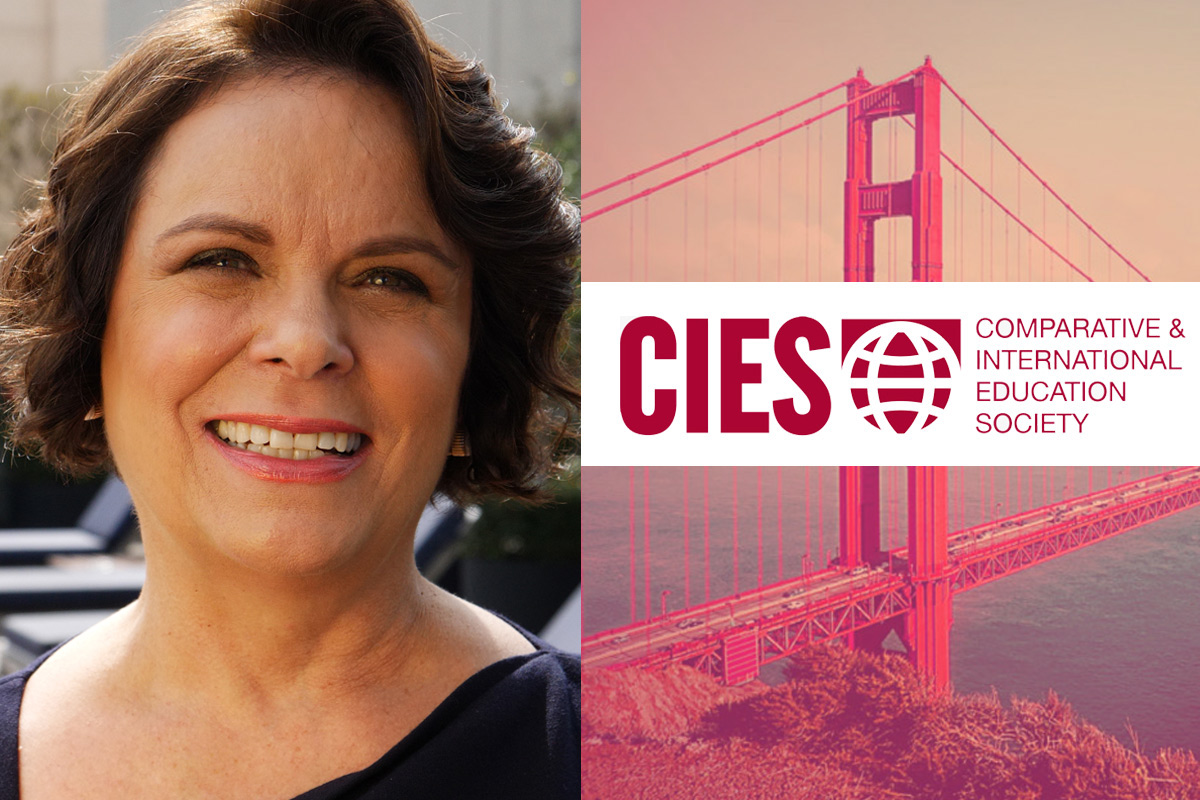
BRIDGING A GAP Cortina calls for “reforms to increase the range and type of knowledge production in education.” (Photo: TC Archives)
Debunking “the Modern Development Project” to Save “the Third World”
In her Presidential Address at the 2019 meeting of the Comparative & International Education Society, Regina Cortina, Professor of Education, reflects on Western social science’s “dominance over frameworks of analysis used by comparative education scholars to understand Latin American societies and cultures.” The field is embedded in a larger discussion of the relationship between education and development, Cortina argues, in which “the expansion of public education has been understood as a quest for modernity.” The result is the concept of “the Third World” and the view that it “has to be saved by the modern development project” in which “schooling should be a process of assimilation.”

SOONER CAN BE BETTER A study finds that a partnership led by a TC center has improved the success of minority and high-need high school students who take college courses. (Photo Credit: iStock)
A Head Start Helps in College, Too
A professional development program for schools serving high-need and minority students, created by a partnership led by TC’s National Center for Restructuring Education, Schools & Teaching (NCREST), has significantly improved students’ success in dual enrollment college courses, according to preliminary results of an independent study conducted by researchers at the University of North Carolina. NCREST leads the STEM Early College Expansion Partnership (SECEP), which includes Jobs for the Future (JFF) and the Middle College National Consortium (MCNC). SECEP is offering the professional development program in four Michigan school districts and in Bridgeport, Connecticut.
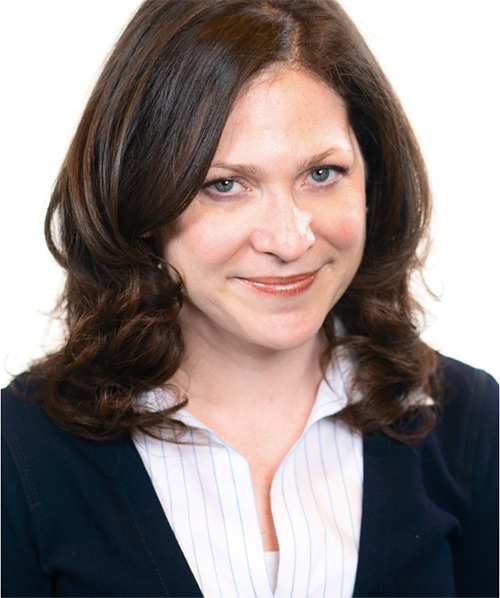
"THE BRAIN IS NOT DESTINY" Kimberly Noble, Associate Professor of Neuroscience & Education, is testing the idea that supplementing families' incomes can improve children's brain development. (Photo: Erick Raphael)
Spotlighting a TC-led Study on Babies’ Brain Development
The Wall Street Journal runs an extensive update on “Baby’s First Year,” the $16 million study co-led by TC neuroscientist Kimberly Noble that seeks to determine whether poverty directly inhibits brain development in very young children. Noble and colleagues are giving new mothers cash payments to see whether supplemented income fosters the growth of their babies’ brains and cognitive abilities. “As a neuroscientist, one of the things I find most exciting is that our experiences change our brains,” Noble says in a TED Talk on the study that has received nearly 2 million views. “This concept, known as neuroplasticity, means that these differences in children’s brain structure don’t doom a child to a lifetime of low achievement. The brain is not destiny.”

PUTTING THE ZING IN SERVICES FOR YOUNG CHILDREN A study led by TC's Sharon Lynn Kagan distills best practices from six other nations. (Photo: iStock)
Golden Rules for Early Childhood Education and Care
In an analysis of six trend-setting nations — South Korea, Hong Kong, Singapore, Finland, England and Australia — Sharon Lynn Kagan, Virginia & Leonard Marx Professor of Early Childhood & Family Policy, finds that high-quality national systems of early childhood education require a carefully planned, comprehensive approach that promotes “policy synergy.” All six countries also look across the development spectrum, beginning prenatally and with abundant parenting supports. They make provision for infants and toddlers and “provide rich services for three- and four-year-old children,” and they focus on helping families transition from preschool to kindergarten. And in all six, “comprehensive health benefits are rather routine.” Kagan calls her report, funded by the National Center on Education and the Economy, a wakeup call to American policymakers: “It does really come down to making our nation more respectful of the importance of the early years and more committed to what makes services for youngsters really zing!”
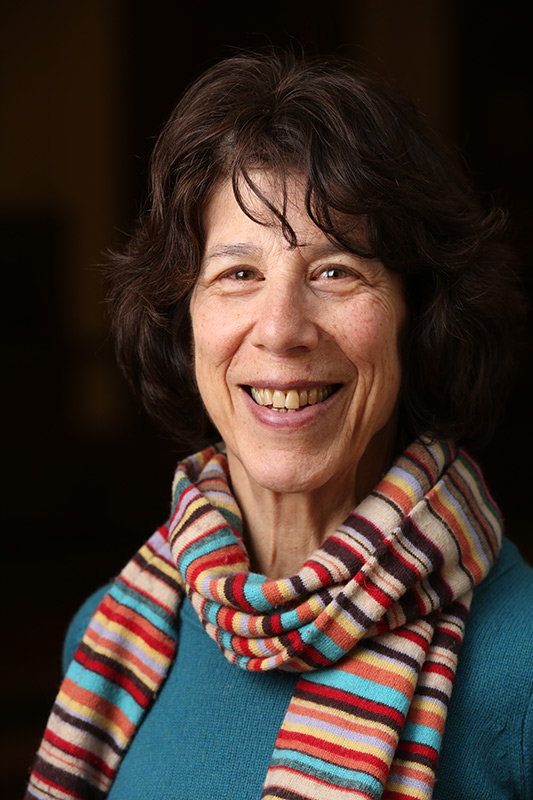
CALL TO ACTION Tversky argues that “Gesture has a large role in guiding and teaching" and spotlights the importance of neural mechanisms such as mirror cells. (Photo: Bruce Gilbert)
Why We’re Not “Soggy Computers”
What are our thoughts really made of? Not words, argues Barbara Tversky, Professor of Psychology & Education, in Mind in Motion: How Action Shapes Thought (Basic Books). Drawing together evidence from neuroscience, behavior, language and designs in the world, both ancient and modern, Tversky finds that spatial cognition is foundational to all thought, enabling human beings to draw meaning from their bodies, their surroundings, and their actions in the world. Joining an enthusiastic chorus of reviewers, The Wall Street Journal paraphrases the book’s main takeaway: “The fact that our brains are in bodies shapes how they think. We are cognitive animals, not merely soggy computers.”
Celebrating the Many Roles of Psychological Science
At the annual convention of the Association for Psychological Science, Tversky, concluding her year as the organization’s President, curates a Presidential Symposium highlighting the confluence of psychological science and the arts. As President, Tversky promoted and celebrated the many roles of psychological science in other fields and in public policy.
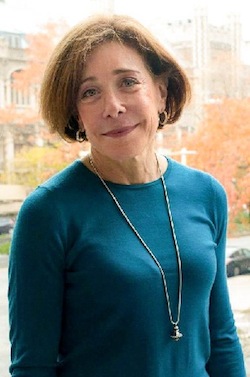
IT STARTS WITH AN INSTRUCTIONAL VISION Wohlsetter and her colleagues offer key lessons for success in working with networks for school improvement. (Photo: TC Archives)
For Schools, Too, It’s All About Networking
A team led by Priscilla Wohlstetter, Distinguished Research Professor, and including TC doctoral students Megan Duff and Clare Buckley Flack, publishes a new guide to help education leaders maximize their success in working with “networks for school improvement” (NSI) — groups of schools that work with partner organizations to improve teaching and learning, typically for underserved minorities. NSI have proliferated as school districts have increasingly tasked communities and schools with figuring out how to meet standards and ensure learning.
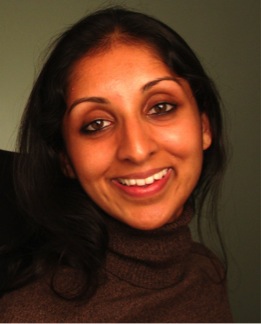
"WE'RE MISSING OUT ON HELPING KIDS" Sonali Rajan, Associate Professor of Health Education, argues that the nation is shortchanging youth who have been exposed to gun violence. (Photo: TC Archives)
America’s Failure to Help Youth Exposed to Gun Violence
In a paper in a special issue of The Journal of Behavioral Medicine devoted to gun violence, TC’s Sonali Rajan, Associate Professor of Health Education, and co-authors tap 81 other journal articles to argue that youth’s exposure to gun violence should be classified as an “adverse childhood experience” (ACE), an official designation used by the U.S. Centers for Disease Control and Prevention (CDC) to describe all types of abuse, neglect and other potentially traumatic experiences that occur to people under the age of 18. Noting in an interview that “for the past two decades, the CDC and others have been intimidated into not seeking funding into the prevention of gun violence,” Rajan declares, “we’re missing out on helping kids who likely really need support.”
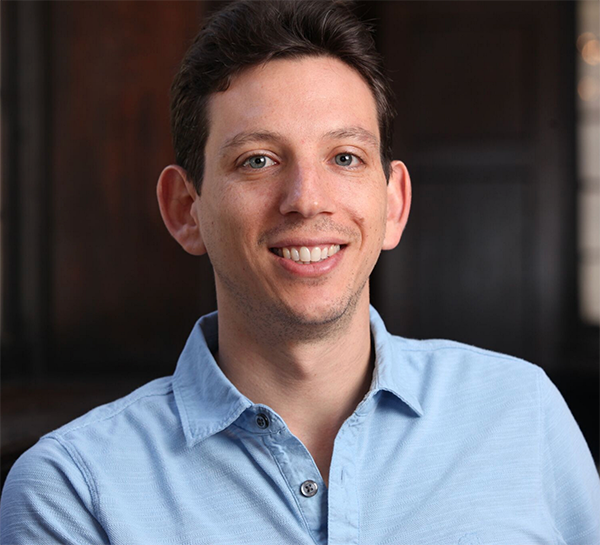
GOOD MOVES Bergman co-designed a successful intervention to get families to relocate to higher opportuntity neighborhoods. (Photo: TC Archives)
Getting Low-Income Families to Higher-Opportunity Neighborhoods
In a study in Seattle and its environs, an intervention co-designed by TC economist Peter Bergman produces unprecedented gains in moving low-income families to “higher-opportunity” neighborhoods by significantly reducing common barriers in using housing choice vouchers provided through the federal Housing Choice Voucher program (Section 8). Previous research by several of the study’s authors has shown that every year spent in a higher-opportunity neighborhood during childhood increases the likelihood of college attendance and total lifetime earnings by $200,000. The study is the focus of a column by The New York Times’ Nicholas Kristof.

INCLUSIVE CIRCLE DecisionMaker's Cost-Utility Framework weighs all the factors and includes all the stakeholders in education spending decisions.
Helping Educators Weigh Costs, Benefits and Buy-In
TC’s Center for Benefit-Cost Studies in Education (CBCSE) launches DecisionMaker, an online tool to help schools, districts and state education agencies make choices about curricula, professional development, after-school programs and other resources. Building on methodologies developed by the late psychologist Ward Edwards and Teachers College education economist and CBCSE founding director Henry Levin, DecisionMaker, in essence, facilitates a virtual town meeting, juxtaposing data on costs against student outcomes and other, harder-to-quantify information such as stakeholder opinions and preferences. DecisionMaker is offered free of charge.

DEFINING ISSUE Climate change affects everyone's life, and schools have a key role to play, the new report's authors argue. (Photo: TC Archives)
Teach Our Children — About Climate Change
New findings from The Public Matters: How Americans View Education, Health & Psychology, a public-survey project at Teachers College, show that a large majority of Americans support teaching primary and secondary school students about global warming and climate change. However, support for such climate education is significantly higher among women, people of color, younger adults, people in urban communities, and those identifying as liberals or moderates. The Public Matters is led by Aaron Pallas, Arthur I. Gates Professor of Sociology & Education, and Oren Pizmony-Levy, Associate Professor of International & Comparative Education.
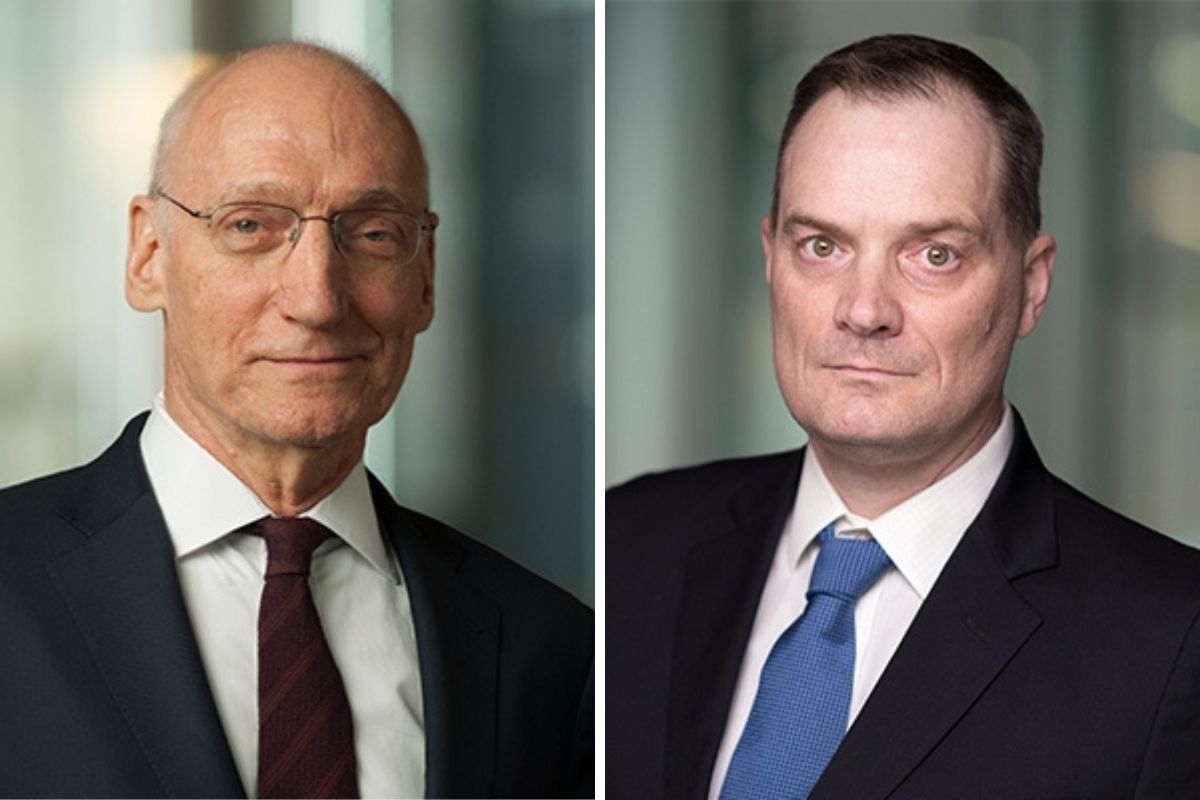
BROADER SCHOOL OF THOUGHT TC President Thomas Bailey (left) and Queens College economist Clive Belfield call for education that bridges career and civic preparation. (Photos: Left, John Emerson; Right, Courtesy of Clive Belfield)
Challenging Education’s “False Dichotomy”
“Education isn’t only about preparing you for work. It is also about citizenship and ethics. Students need career and technical skills. But they also need courses such as English that can provide the type of background that allows wages to grow. We need to put them together.” So argues Teachers College President Thomas Bailey in discussing “The False Dichotomy between Academic Learning & Occupational Skills” as part of the 2019 Mandel Annual Public Lecture of the American Academy of Arts & Sciences (AAAS). The talk, given by Bailey and Clive Belfield, Professor of Economics at Queens College, City University of New York, is based on a paper they published previously in a special issue of Daedalus, the AAAS journal.
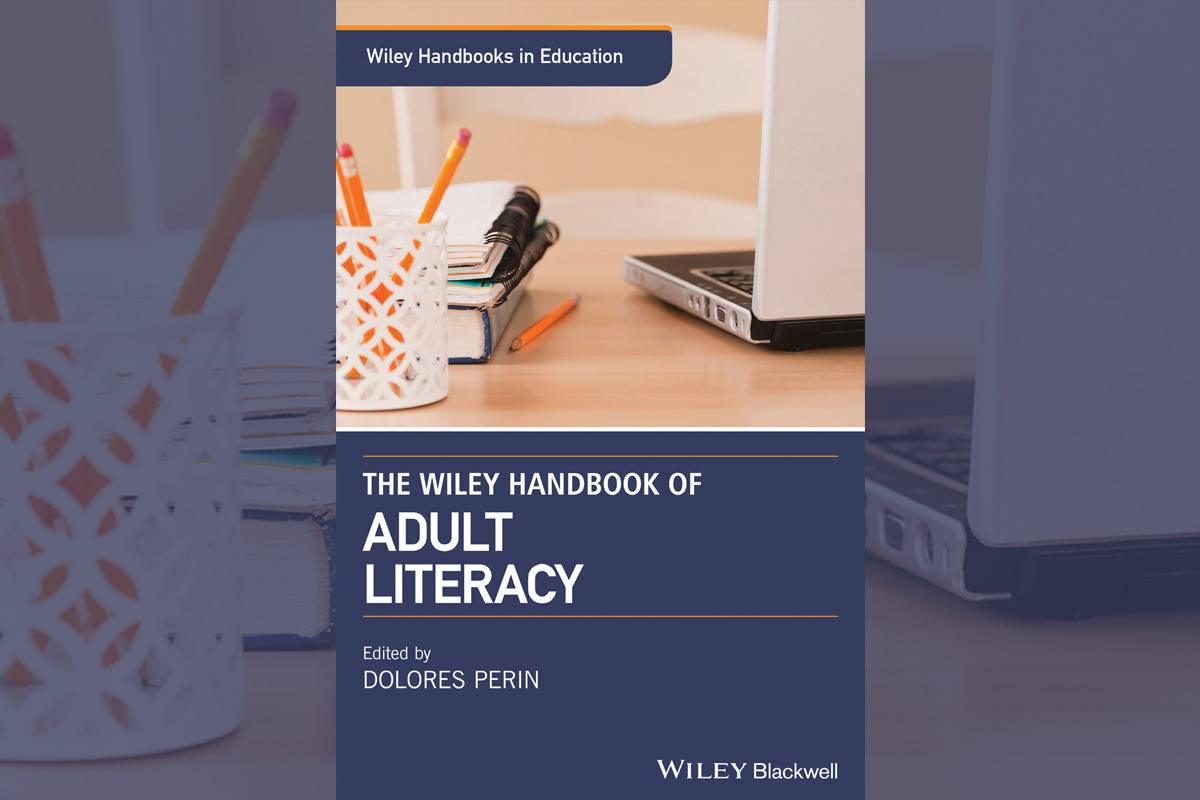
LITERACY IS CONTEXTUAL One of Perin’s premises is that people’s literacy skill level can be defined by the specific tasks that confront them. (Photo: Wiley Blackwell)
On the Same Page: Linking Adult Literacy Issues
In The Wiley Handbook of Adult Literacy, Dolores Perin, Professor of Psychology & Education and Director of TC’s Applied Education Psychology: Reading Specialist Program, links three seemingly disparate groups of adults: those with low reading skills (including non-native English speakers); those who enter community colleges with low literacy skills; and higher-skilled adults (including some in graduate school) who have dyslexia. “A large proportion of people in each of these populations have a problem with awareness of phonemes, which are the smallest unit of sound that we can appreciate,” Perin says. “That issue is a real drag on their ability to make reading automatic. She adds that “higher-skilled people with dyslexia may appear to be functioning well, but may have to work eight times as hard.”

FLAGGING A THREAT Pizmony-Levy's study finds that Ireland's LGBT+ students feel unsafe at school. (Photo: Mount Temple Comprehensive School, Dublin, Ireland)
Ireland Has Work to Do in Protecting its LGBT+ Students
Despite Ireland’s legalization of same-sex marriage four years ago, a survey led by Oren Pizmony-Levy, Associate Professor of International & Comparative Education, finds that nearly three-quarters of Ireland’s LGBT+ students feel unsafe at school. The Ireland study — called the 2019 School Climate Survey — was sponsored by the Global Observatory of LGBT+ Rights and Education, a research partnership between TC and non-government organizations that is documenting the school experiences of LGBT+ students around the world.
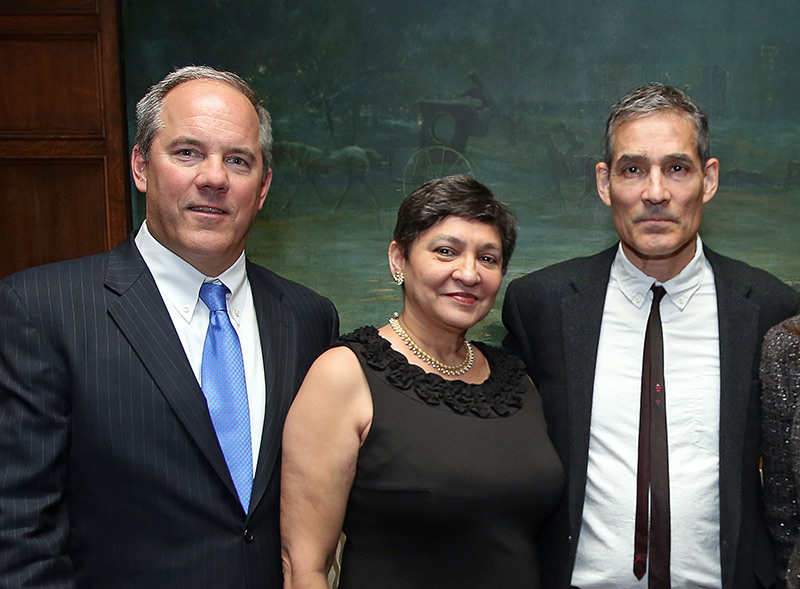
JOINING FORCES Resilience Center benefactor and TC Trustee David O'Connor (left) with Dinelia Rosa, Director of TC's Dean-Hope Center, and George Bonanno, Professor of Clinical Psychology and Resilience Center Director. (Photo: Bruce Gilbert)
Taking Resilience to the Next Level
Teachers College’s Resilience Center for Veterans & Families, directed by George Bonanno, Professor of Clinical Psychology, receives several important grants. The Disabled Veterans National Foundation supports free clinical services for veterans. The Starbucks Foundation funds professional development programs and further refinement of an abbreviated, three-session model of interpersonal psychotherapy (ITP-3) that has decreased veterans’ symptoms of PTSD, depression and distress. And the New York State Health Foundation supports professional development. The Center has also received doctoral student scholarship funding from John Khoury and additional scholarship funding from the Barbara A. Noyes Charitable Foundation.

FEWER BULLETS = FEWER MASS SHOOTINGS A study by TC's Louis Klarevas shows the benefits of banning large-capacity magazines. (Photo: iStock)
Findings on Mass Shootings: Ban Large-Capacity Magazines
States that ban large-capacity magazines (LCMs) — detachable ammunition feeding devices that hold more than 10 bullets — experience substantially fewer high-fatality mass shootings than states that do not ban LCMs, according to a study in the American Journal of Public Health led by TC research professor Louis Klarevas. In addition, deaths in high-fatality mass shootings, relative to the population, are more than three times higher in states that do not restrict LCMs. “Our research suggests that imposing tight restrictions on LCMs offers a practical legislative solution for helping to safeguard Americans from the threat of mass shootings,” Klarevas says.
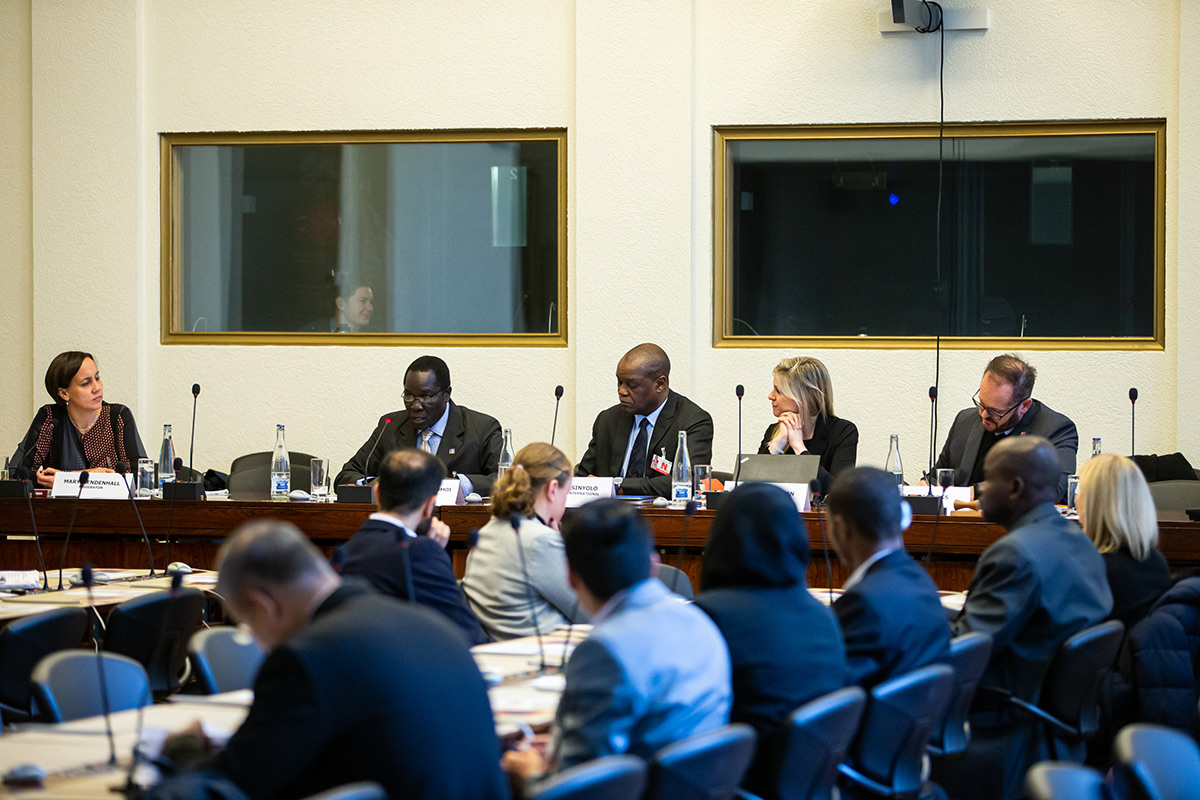
THE CASE FOR SUPPORT Mendenhall (far left) led a panel in Geneva on why the future of refugee education hinges on better supporting teachers. Also present (second from right) was TC alumna Charlotte Bergin (M.A. '15), Coordinator, Capacity Building, at Inter-agency Network for Education in Emergencies. (Photo: @UNHCR/Pierre Albouy)
How to Improve Refugee Education
Without “significant and sweeping changes to better support teachers working in contexts affected by crisis, displacement or natural disasters,” many refugees will be unable to achieve self-reliance, and host countries will remain under enormous pressures, warns Mary Mendenhall, Associate Professor of Practice in TC’s International & Transcultural Studies Department. Speaking at the Global Refugee Forum, convened by the United Nations High Commissioner for Refugees and co-sponsored by Teachers College, Mendenhall — whose model for training refugees to teach is now used in 20 nations — calls for “major improvements” to “support robust and continuous professional development opportunities for teachers, as well as equitable compensation structures that ensure a livable wage and pathways toward professional certification that are recognized across borders.”

LET'S DO LUNCH A report by the Tisch Food Center finds that New York City can enable its 1,700 school cafeterias to prepare freshly cooked meals. (Photo: Tisch Food Center)
If You Can Make It Here . . .
A new report from TC’s Laurie M. Tisch Center for Food, Education & Policy finds that New York City public schools can make fresh food a reality for their students. The city is the nation’s largest school district, with 1,700 school cafeterias serving 900,000 meals each day. The result of the Tisch Food Center’s years-long evaluation of the New York City Department of Education’s scratch-cooking pilot program, the report identifies key points of action needed for valuable nutritional changes in cafeterias across the city, including investments in kitchen infrastructure and staff training and advancement, and better coordination of everyone involved in school food.
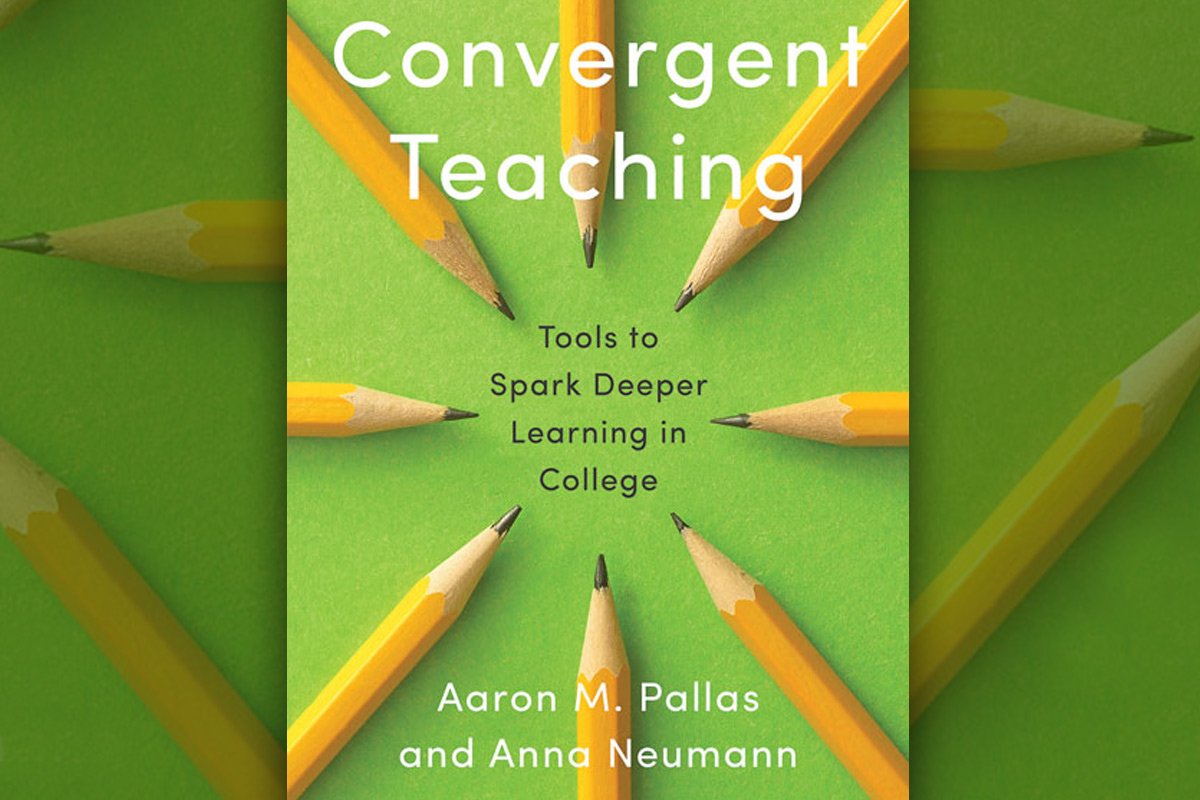
CONVERGENT THINKERS Pallas and Neumann believe that college-level teaching must attend simultaneously to what students are learning and the personal, social, and cultural contexts shaping that process. (Book Cover: Johns Hopkins University Press)
Fixing Higher Ed: It Starts with Better Teaching
“Going to college is the engine of the American dream, but there is much more attention to the acquisition of credentials that can be exchanged for jobs and a comfortable standard of living than to the learning of anything in particular,” write Aaron Pallas, TC’s Arthur I. Gates Professor of Sociology & Education, and Anna Neumann, Professor of Higher Education, in Convergent Teaching: Tools to Spark Deeper Learning in College (Johns Hopkins University Press). Their solution, “convergent teaching,” requires “continuous attention to core disciplinary concepts new to students, to what students already know and believe, and to a repertoire of instructional practices that can support students in moving from their existing knowledge to elaborated and abstract understandings that can be transferred . . . into new contexts.”
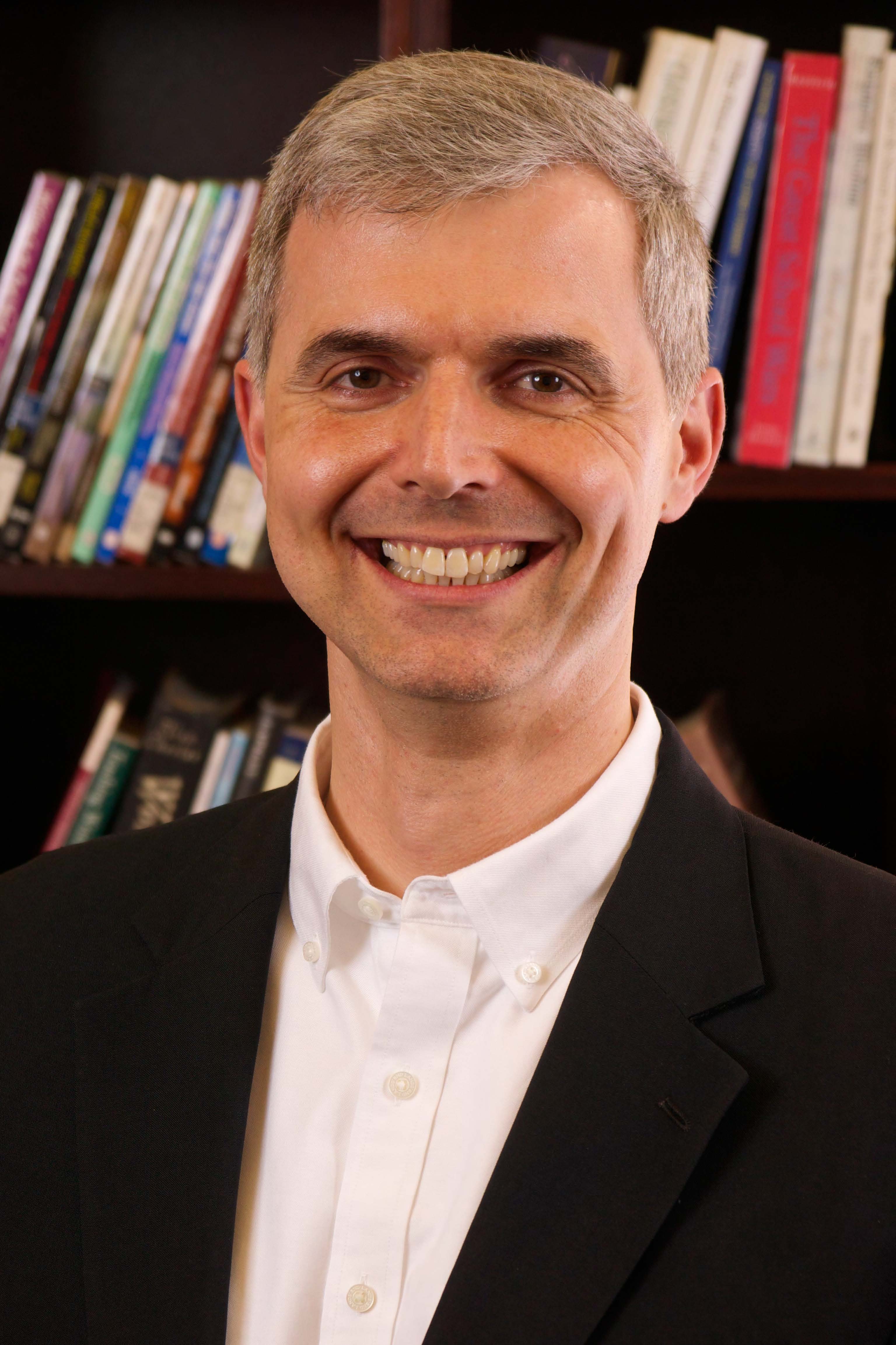
MAN IN THE MIDDLE Alex Bowers is bringing together data scientists and school leaders to ensure that the latter get the information they need. (Photo: Erick Raphael)
Getting Educators to Help Design Their Own Data Dashboards
Online smart teaching systems are generating valuable data about individual students, schools and entire districts, but many administrators and teachers don’t use that information — either because they can’t easily access or understand it, or because they find it irrelevant to their needs. Funded by the National Science Foundation (NSF), Alex Bowers, Associate Professor of Educational Leadership, brings together educators from the Nassau County Long Island, New York Board of Cooperative Educational Services (BOCES), which serves 56 school districts, with data scientists and data visualization experts from across the nation. Over two days, working in 11 sprint-data teams, the attendees create visualizations of data requested by the educators and begin building them in open-source software for use nationwide. During 2020, Bowers will release an e-book from the meeting with coding for these new tools.
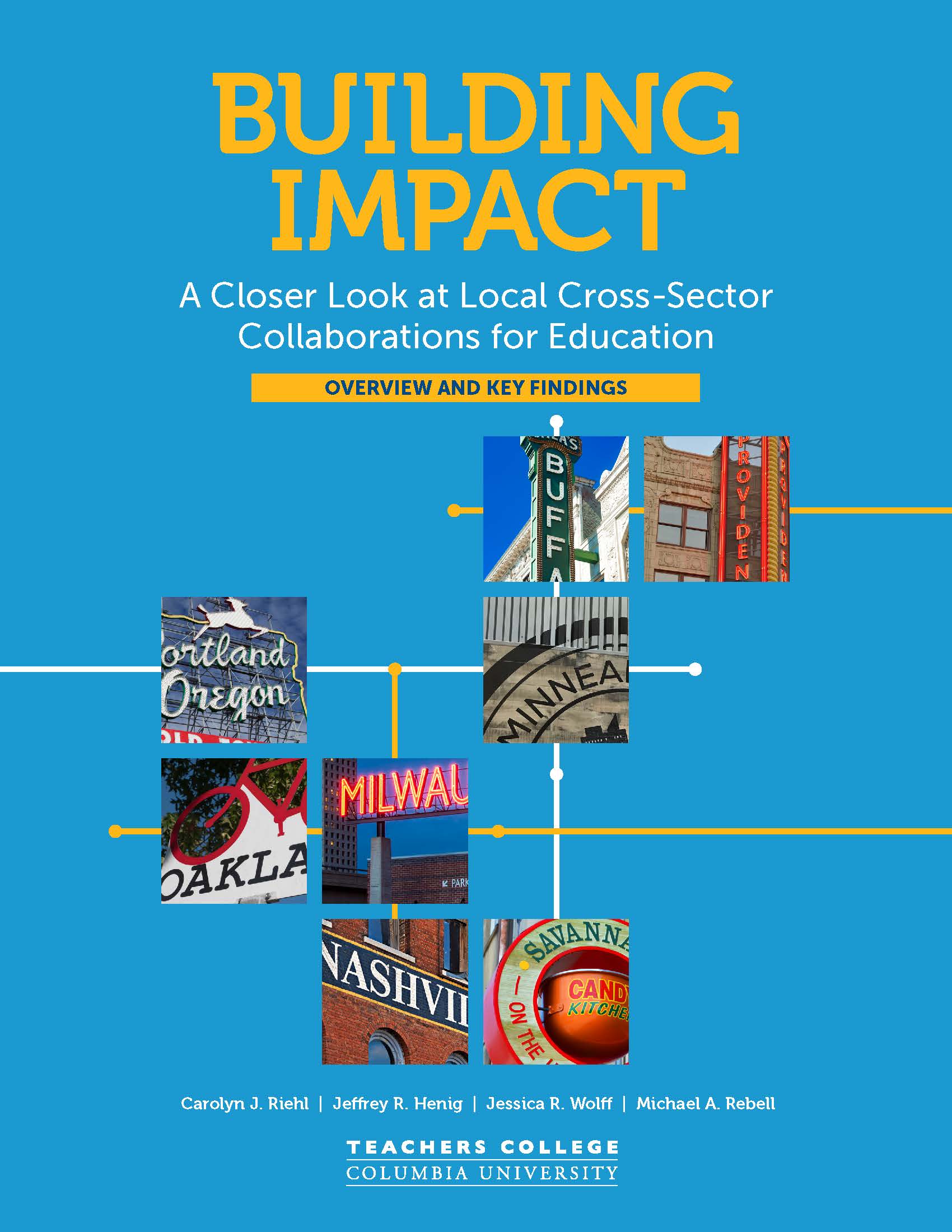
IT TAKES A VILLAGE — WORKING TOGETHER A TC study finds that the "collective impact" movement, in which different sectors come together to improve local schools, shows promise for enacting reforms. (Photo: TC Archives)
Cross-Sector Collaboration Shows Promise for Education Reform
Concluding a three-part study funded by the Wallace Foundation, TC researchers Carolyn J. Riehl, Jeffrey R. Henig, Jessica R. Wolff and Michael A. Rebell find that “collective impact” — collaborations among governments, businesses, schools, universities, nonprofits and foundations to improve education — shows “promise for creating a new kind of venue to bring local partners together who often have not cooperated in the past and have even been in conflict.” Challenges exist, but in eight areas nationwide, the researchers find “enough indicators of good things happening that the waning of the movement would represent a loss.”